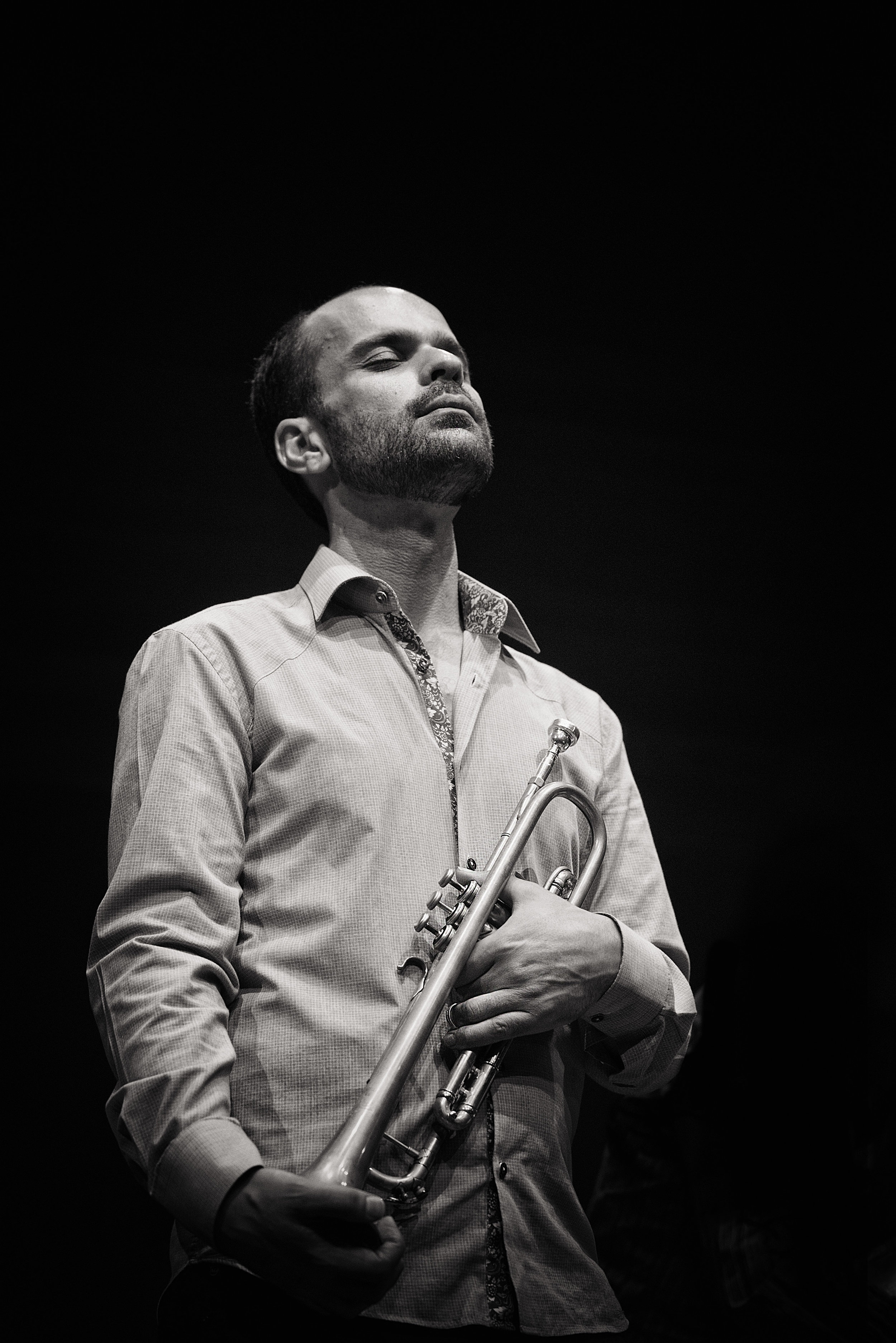Amir ElSaffar
Composer, trumpeter, santur player, and vocalist AMIR ELSAFFAR has been described as “uniquely poised to reconcile jazz and Arabic music,” (the Wire) and “one of the most promising figures in jazz today” (Chicago Tribune). A recipient of the Doris Duke Performing Artist Award and a 2018 US Artist Fellow, ElSaffar is an expert trumpeter with a classical background, conversant not only in the language of contemporary jazz, but has created techniques to play microtones and ornaments idiomatic to Arabic music that are not typically heard on the trumpet. Additionally, he is a purveyor of the centuries old, now endangered, Iraqi maqam tradition, which he performs actively as a vocalist and santur player. As a composer, ElSaffar has used the subtle microtones found in Iraqi maqam music to create an innovative approach to harmony and melody, and has received commissions to compose for large and small jazz ensembles, traditional Middle Eastern ensembles, chamber orchestras, string quartets, and contemporary music ensembles, as well as dance troupes.
Described as “an imaginative bandleader, expanding the vocabulary of the trumpet and at the same time the modern jazz ensemble,” (All About Jazz), ElSaffar is an important voice in an age of cross-cultural music making. ElSaffar has received commissions from the MAP Fund, Arab Fund for Arts and Culture (AFAC), Newport Jazz Festival, Metropolitan Museum of Art, Chamber Music America, Jazz Institute of Chicago, and is composer-in-residence at the Royaumont Foundation in France in 2017-2019.
ElSaffar’s most recent release, Rivers of Sound: Not Two (2017, New Amsterdam Records) features his 17-piece Rivers of Sound Orchestra, consisting of musicians from an variety of musical backgrounds. Using resonance as its governing principle, the music incorporates elements of maqam modal music of the Middle East with jazz and other contemporary musical practices to create a unique microtonal musical environment that moves beyond the notions of style and tradition into a realm of uninhibited musical communication. Each musician of the orchestra interacts with the group through the combination of improvisation and composition, the merging of musical languages, maqam and polyphony, toward the goal of reaching a collective state of Tarab, or musical ecstasy.
The Rivers of Sound Orchestra is an expansion of ElSaffar’s six-piece Two Rivers Ensemble. Active since 2006, this sextet explores the juncture between jazz and music of the Middle East. Their 2015 release, Crisis (Pi Recordings) is a reflection on a region in turmoil and strife: revolution, civil war, sectarian violence; a culture’s struggle for survival. The music passionate and visceral, a cry from the heart. Crisis was commissioned by the Newport Jazz Festival, where at its 2013 premiere, it made a clear emotional connection to the audience, receiving a rousing standing ovation after just the first piece.
He currently leads four critically-acclaimed ensembles: The 17-piece Rivers of Sound Orchestra; Two Rivers, which combines the musical languages and instrumentation of Iraqi Maqam and contemporary jazz; the Amir ElSaffar Quintet, performing ElSaffar’s microtonal compositions with standard jazz instrumentation; Safaafir, the only ensemble in the US performing and preserving the Iraqi Maqam in its traditional format; and The Alwan Ensemble, the resident ensemble of Alwan for the Arts, specializing in classical music from Egypt, the Levant, and Iraq. In addition, he has worked with jazz legend Cecil Taylor, and prominent jazz musicians such as Mark Dresser, Gerry Hemingway, Marc Ribot, Henry Grimes, and Oliver Lake. ElSaffar has appeared on numerous recordings, and has released six under his own name, Maqams of Baghdad (2005), Two Rivers (2007), Radif Suite (2010), Inana (2011), Alchemy (2013), and Crisis (2015).


